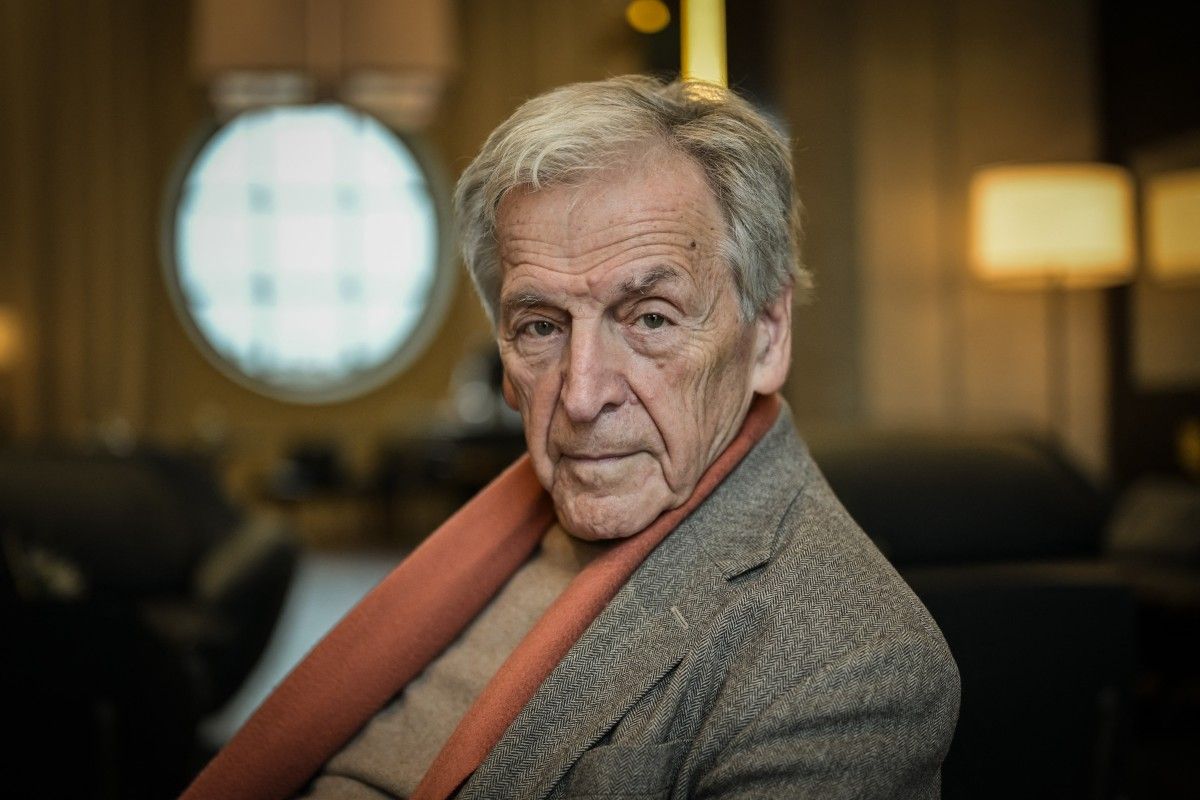
Filmmaker Costa-Gavras, drawing on the wisdom of his 91 years, embarks on a meditation on mortality as he presents his new film “Le Dernier Souffle” at the Lumière festival in Lyon.
At 91, the Franco-Greek filmmaker Costa-Gavras confronts the concept of death with the calmness of an experienced director, all while preparing a new political film. During the Lumière festival in Lyon, he presented his latest feature, Le Dernier Souffle (“The Last Breath”), set for release in January 2025. Adapted from a work by Régis Debray and physician Claude Grange, the film delves into philosophical debates about death through the dialogues between a palliative care practitioner, played by Kad Merad, and a writer, portrayed by Denis Podalydès.
Immense Distress
The filmmaker shared with AFP that he is preparing for the end of his life with the hope for a “good ending,” expressing a desire to leave this world “without pain, without drama, without constant agony.” Costa-Gavras laments the lack of necessary means for a peaceful end in our society.
“Death terrifies us from a young age, and we don’t want to talk about it. No, we need to talk about it and prepare,” he insists. At the premiere, he noted that this film serves as a way to engage with his own mortality. Podalydès, his on-screen partner, spoke of an “immense distress” after exploring such a delicate theme, describing the film as an “extremely gentle ride.”
A Human Cinema
Born in 1933 in the Peloponnese, Costa-Gavras fled Greece at the age of 20 due to political tensions involving his father. In Paris, he was welcomed with respect—an experience that has deeply marked him. “For the first time, I was called ‘mister’,” he recalls, a recognition that has endured throughout his career.
On October 12, the director received a special award at the Lumière festival from Tim Burton, who praised his cinema as “human, beautiful, and thoughtful.” Costa-Gavras has left his mark on the cinematic landscape since the late 1960s with notable works like Z, inspired by the Greek colonels’ coup, and L'Aveu, based on Artur London’s memories of the communist purges in Czechoslovakia.
Touching on various themes, from immigration (Eden à l'ouest, 2009) to the Greek financial crisis (Adults in the Room, 2019), he admits that “making a political film is always difficult,” a reality that often frightens producers. However, he credits his creative freedom to his wife, Michèle Ray Gavras, and the successes of his earlier works.
Engaged Art
For Costa-Gavras, every film is inherently political. “I am committed, but we all are when we make cinema,” he emphasizes. He likens the creative process to a friendly discussion around a table, where everyone shares stories that matter to them. “You must always establish a very close relationship with an actor for them to become the character you want them to be,” he notes.
As for his journey, Costa-Gavras prefers not to look back too often. Instead, he is already considering new ideas, aware of the challenges in an ever-changing world. “There is so much to explore in a world that has changed so much and is very provocative in many ways,” he concludes, hinting that he still has much to offer.
With AFP



Comments